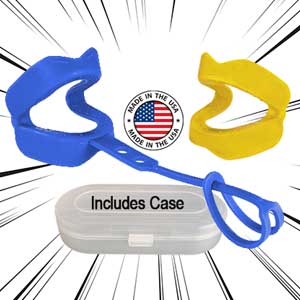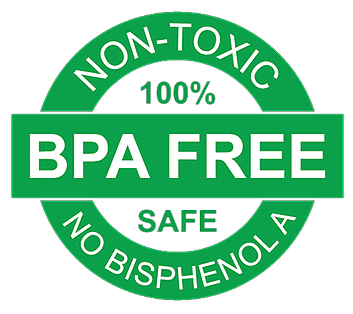BPA Issues with Mouthguards
When it comes to our health, we must take an active role in protecting ourselves and our loved ones. With so many products manufactured outside the United States, it’s more important than ever to be vigilant about potential exposure to harmful chemicals—especially those that can’t be seen or tasted.
One key concern is the presence of BPA in everyday products, including mouthguards. To ensure the safety of you and your family, always check where a mouthguard is made. Choosing a USA-made option, like Kid’s Comfort Pro mouthguards, can give you peace of mind, knowing you’re avoiding unnecessary chemical risks. Stay informed, stay safe, and always advocate for your health!
What is BPA, and what are the concerns about BPA?
Courtesy of Mayo Clinic, Dr. Brent A. Bauer
Answer From Brent A. Bauer, M.D.

BPA stands for bisphenol A, an industrial chemical that has been used to make certain plastics and resins since the 1950s.
BPA is found in polycarbonate plastics and epoxy resins. Polycarbonate plastics are often used in containers that store food and beverages, such as water bottles. They may also be used in other consumer goods.
Epoxy resins are used to coat the inside of metal products, such as food cans, bottle tops and water supply lines. Some dental sealants and composites also may contain BPA. Some research has shown that BPA can seep into food or beverages from containers that are made with BPA.
BPA Exposure

Exposure to BPA is a concern because of the possible health effects on the brain and prostate gland of fetuses, infants and children. It can also affect children's behavior. Additional research suggests a possible link between BPA and increased blood pressure, type 2 diabetes and cardiovascular disease.
However, the U.S. Food and Drug Administration (FDA) has said that BPA is safe at the very low levels that occur in some foods. This assessment is based on the review of hundreds of studies. The FDA continues to monitor the research.
If you're concerned about BPA, you can take steps to reduce your exposure:
- Use BPA-free products. Manufacturers are creating more and more BPA-free products. Look for products labeled as BPA-free. If a product isn't labeled, keep in mind that some, but not all, plastics marked with recycling code 3 or 7 may contain BPA.
- Avoid heat. Don't put plastic containers in the microwave or dishwasher, because the heat may break them down over time and allow BPA to leach into foods.
- Focus on fresh whole foods. When you can, choose fresh whole fruits and vegetables.
- Use alternatives. Use glass, porcelain, or stainless-steel containers for hot foods and liquids instead of plastic containers.
We invite you to browse our website to learn why Coaches and Dentists recommend Kid's Comfort Pro sports mouthguards. In short, the Kid's Comfort Pro is the best choice for a sports mouthguard because it offers a perfect balance of protection, comfort, and durability, ensuring athletes can play confidently without worrying about dental injuries. Designed with a soft yet shock-absorbent material, it provides superior impact protection against collisions, and falls while playing. Its snug, natural-fit design ensures a secure and comfortable feel, making it easy to breathe and speak without constant readjustments.
Unlike bulky mouthguards that can feel uncomfortable or restrict airflow, Kid’s Comfort Pro is crafted to promote open-mouth breathing and maximum comfort, encouraging consistent use. Additionally, it is made with safe, BPA-free materials and is compatible with braces, offering all-around safety for athletes. With its premium protection and focus on comfort, Kid’s Comfort Pro stands out as the top mouthguard for athletes who need reliable protection without sacrificing performance. Trusted by professionals to not have BPA issues with mouthguards, Kid's Comfort Pro sports mouthguards combine safety and comfort, making them the ideal choice for athletes.




